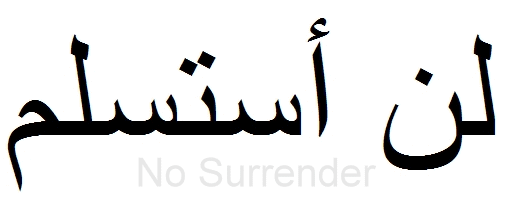
Image: The town of Pythagoreio (Πυθαγόρειο), on the south-eastern side of the island of Samos, Greece. Source.
IANS, April 8th, 2007: The Greek island of Samos has seen a rise in visitors lately arriving on its turquoise blue shores. Unfortunately they do not frequent the beaches or hotels catering to thousands of tourists. The 'visitors' are illegal migrants.
Their abode is usually police stations, the court and detention centre catering to boatloads of desperate migrants risking death to cross the perilous strait into Greece from neighbouring Turkey.On some Greek islands, like Mytilene, the boat arrivals occur a few times a month. But for Greek coastguard captain, Nikos Psarakis, and his crew who patrol the waters around the tiny island of Samos, the phenomenon has become an almost nightly ritual.'The problem is getting worse,' he says.
'Many times we encounter them while they are in their vessels, other times when they have been tossed into the sea and are trying to desperately swim towards shore.'At least 50 people including women and children have died in the last few months after smugglers forced them overboard in stormy seas in an effort to make a fast getaway from the Samos Coast Guard.Even when the human traffickers are not ruthless, the boats, made out of rotting wood or plastic, are overcrowded and barely up to the journey and capsize often drowning their passengers. Greece and Italy are often the next stops on the passage of immigrants following a well-known route through Turkey, costing $3,000 per person, which they are barely able to afford.
With only two Coast Guard patrol boats and 15 men to scout more than 900 sq km of sea, Guard Commander Bonofos Diamantis said his men 'were overwhelmed - and too busy working round the clock capturing migrants'.'The area under our jurisdiction is just too big to patrol and we are unable to carry out other duties such as narcotics smuggling and tourism safety,' said Diamantis, adding that smugglers prefer to make the journey to Samos because the island lies just hundreds of metres from the Turkish coast.'
Already this year we have received three times more illegal immigrants than last year combined. Dozens are dead and more than 700 migrants have been detained, the majority from Iraq, Iran, Somalia and Afghanistan,' the officer said, adding the human traffickers were often Turkish nationals.Setting off under the cover of darkness from the island's port with only a radar system to guide the patrol boat through the Aegean Sea, Coast Guard Captain Psarakis said smugglers have recently been dumping their passengers into the sea rather than facing the risk of being caught by the coastguard.'The smugglers prefer not to make the journey when the moon is bright because their vessels are illuminated and they also tend to risk the trip across the strait when the sea is rough and the winds are high,' said Psarakis.
'The women and children are the most vulnerable because they do not know how to swim.' Clearly angry, Diamantis said Turkey must do more to stop the drowning by respecting agreed guidelines for cracking down on illegal immigration from its ports.Greece has repeatedly criticized Turkey for not abiding by a bilateral agreement that allows illegal immigrants to return to Turkey, which can then either fine the illegals or deport them. 'It is characteristic that in the last four years, Greece has submitted requests for 22,000 cases for the re-entry of illegal immigrants who had passed into our country from Turkey. In these requests, the Turkish authorities accepted 1,400 of them or 6 percent.
These figures speak for themselves,' said Greek freign ministry spokesman Giorgos Koumoutsakos. 'Greece is waiting for Turkey to implement the Greek-Turkish re-entry protocol and sign the EU-Turkey re-entry agreement,' he added. Armed with rifles, Psarakis and his men stop dozens of vessels every night to inspect them. And the island's police eventually pick up migrants that are not caught at sea once they reach land. They are then sheltered on the island's crowded detention centre for three months.Some file for asylum on release while others like 22-year-old Walid from Palestine take their meagre belongings and a police-issued paper ordering them to leave the country within one month, and head to Athens.Samos, like other Greek islands, depends on tourism and many officials on the island fear the immigrant situation could affect their livelihoods. 'We do not care where they go. We just want them to leave the island which is why we pay for their ferry ticket to Athens,' said the island's deputy prefect Thanos Stilianidis. Other islanders' like Maria Kerhalya are more sympathetic to the plight of the migrants and offer food and clothing outside the island's detention centre.
The International Organization for Migration said that trafficking has become a global business generating huge profits for traffickers and organized crime syndicates.A recent study revealed that at any one time there are an estimated 15 to 30 million irregular migrants worldwide and that an estimated 700,000 women and children are trafficked annually across borders.'Many of the migrants who enter Greece want to travel elsewhere in Europe,' said Hro Nikolakopoulou-Stefanou from the Greek Council for Refugees.'They want to come to Europe but many times they do not know what that is - they only know that they will be safe there,' she added, while waiting for a ferry to take him from Samos to Athens.
Walid looks forward to the 12-hour journey, saying from there he will try to make his way to Norway. 'Why Norway? I don't know - all I know is that I am free,' he shouted, waving enthusiastically from the deck of the ship.




0 Comments:
Post a Comment
<< Home